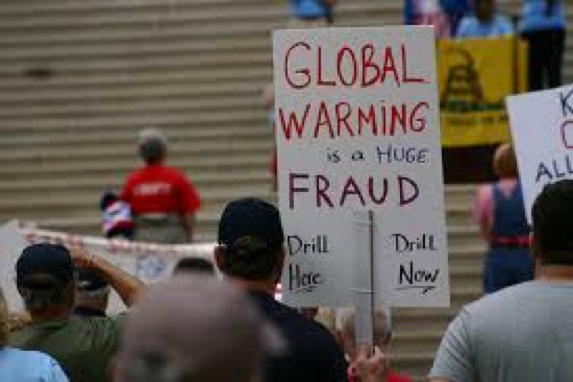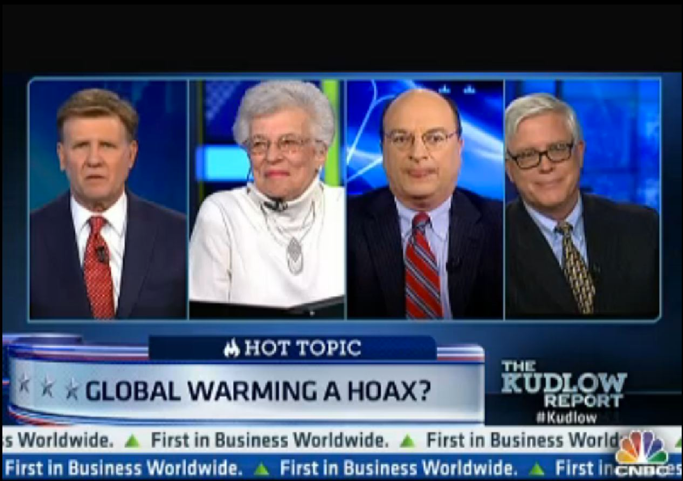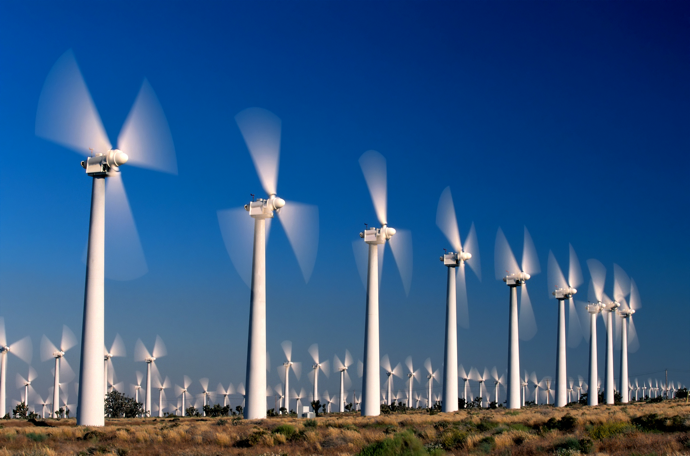|
Climate change has been impacting the planet for quite a while now. In fact, Arrhenius published the first calculation of global warming from human CO2 emissions in 1896. For many people, it is easy to confirm that climate change is a real problem and escalating fast. However, there is a staggering division amongst opinions, especially in the United States. As of 2016, roughly 31% of Americans denied that climate change is due to humans, and 20% deny climate change altogether. So what’s with this gap in popular opinion? How can people be so skeptical of the changes happening right in front of them? To some, it’s hard to understand how our peers can be so skeptical of something that is happening right in front of them. The way we view information depends on how we interpret it as well as whether or not we want to take ALL the information into account. Interpreting climate change data, can be difficult to anyone who is not familiar with scientific jargon. Some people are intimidated by graphs and charts. This can lead to ignoring information that is clearly displayed, all on the basis of disliking the format or way it was presented. Another issue, when interpreting facts, is how those facts directly impact the person looking at them. Obviously, someone who owns or manages a company which produces high levels of waste and emissions daily does not want to hear about how they are contributing to a “crisis.” In some cases, this is deliberate. Corporations with vested interests have funded a media campaign to cast doubt and nonprofits that have slick anti-science propaganda. Thus is well-documented in books like Erik Conway’s "Merchants of Doubt", or Michael Mann's "Climate Wars." Not only are people misinterpreting, but the general public listens to these misinterpretations, especially when someone who holds a high profile position (ex: legislators, congressmen, actors, etc.) gives an opinion. However, it’s natural for people to interpret or selectively cherry-pick evidence and facts so that their own beliefs are confirmed. This is referred to as a ‘confirmation bias.’ Unfortunately, for many skeptics, climate change data is interpreted in order satisfy their confirmation bias. “People are always clinging to what they want to hear, discarding the evidence that doesn’t fit with their beliefs, giving greater weight to evidence that does.” Media and Politics only amplify denial Media and politics play a large part in how people view climate change, and can also fuel their skepticism. Everyone knows that the media can twist words and choose what part of the story they want to tell in order to satisfy the public. Climate change is usually not the “juicy” story that people want to watch or read about because the media can over sensationalize the information or event. Major news networks choose to ignore mentioning climate change when extreme weather events take place. For instance, hurricane Irma and Maria devastated the Caribbean, and while scientific data showed a correlation between climate change and extreme weather, many news networks neglected to present that information to the public. Also, media tends to cover politics and the views of different politicians more than it covers the views of scientists; and this can influence skeptic views. Scientists aren’t always inclined to engage with the media at times, but it is easier to listen to the opinion of a high profile politician than it is to researching the data that was collected and confirmed on the matter. When a popular politician makes a statement saying that “global warming is a hoax,” the public fails to remember that this is opinion-based only. It’s very unlikely that every politician who has denied climate change actually did their research in order to confirm this denial; and yet these opinions are exposed through the media over scientific findings. ““People put a lot less effort into picking apart evidence that confirms what they already believe.” So how are we supposed to view climate change One thing that is not opinion based, or influenced by outside sources is the scientific data pertaining to climate change; over 97% of scientists and researchers are able to come to a consensus that climate change is a very real threat. So what have we learned so far about the changes occurring globally? Last year, we saw average global temperatures break records, and 2016 was the third record breaking year in a row. Along with these temperature rises, CO2 levels are twice as high as normal, threatening the pH balance in the oceans and contributing the diminishing coral reef. We are also seeing sea levels rise faster than ever before-3.4mm a year-threatening many coastal populations over time. This is only some of the information that we are certain about and that raises concern for our future. It’s not solely about “who” you should listen to; it is also about how you should act to help reduce the effects of climate change. We have moved beyond the argument of “right and wrong” because we already have the information to show that our climate is changing, and now it is time to tackle the threat at hand. "Yet all is not lost. Human beings, while capable of the worst, are also capable of rising above themselves, choosing again what is good, and making a new start." –Pope Francis
4 Comments
Kenya Green
13/11/2017 08:40:25 pm
I agree with you, I also think this is a situation where it is pushed under the rug. The government tell us what they want us to know. But I feel like it is not advertised. If I didn't have a chemistry professor who cared so much about the climate I would never know what was going on. I think we the people should advertise it tell someone who doesn't know about the climate and what's going on with it and educate them and then they tell the next person and the cycle should just keep going so that almost everyone would know the truth about the climate.
Reply
Alison Murray
15/11/2017 11:30:15 am
I agree. Global Warming tends to be pushed aside and avoided at all costs on media and politics. Why would they not want us to know about it though, and how are some so blind to not notice the facts that are right in front of them. It needs to be talked about because if it is not no one will do anything to change it, there are things being done to help but is it enough?
Reply
Desiree Jones
16/11/2017 09:06:52 am
I agree - it still astonishes me that people deny the existence of global warming, which is actually something we were discussing in lecture the other day. I think that media is a big contributor to people's attitudes toward these issues, in both positive and negative ways. Ultimately, I think that people deny it or don't care about choose to do so because they really just don't care about the future of our planet. I guess they just think it's not their problem because they might not face the most awful effects of it in their lifetime? Which to me, is a pretty crappy way of thinking, but that's why it's so important for us to continue having discussions about it. At this point, the evidence is all there. No one can deny the evidence of global warming, it's science. We just have to keep bringing up the issue and hope that more people will begin to see that it really is everyone's problem.
Reply
Kendal Reynolds
17/11/2017 07:17:53 pm
I also agree with this post. Its a shame that the media and people deny that global warming is an actual thing. People don't care about this world and have a very egoistic view on life. The reason I think these politicians deny the fact of all the evidence of global warming having a big impact is because of all of the oil companies funding the government. With the known facts of global warming it points towards renewable energy and what this will do is lose these oil companies tons of money. In a class I took I learned that if you filled Arizona with solar panels, the energy that would be created could power the entire world, but this would completely put these oil companies out of business. And because these oil companies fund elections and government officials, they keep the news about global warming about from the public to disregard any of these ideas. And also you see with everything we've been hearing about from Bonn, they stay away from anything involving it too; backing out of the Paris Agreement and barely having any representatives there.
Reply
Leave a Reply. |
Categories
All
Archives
March 2024
|



 RSS Feed
RSS Feed
